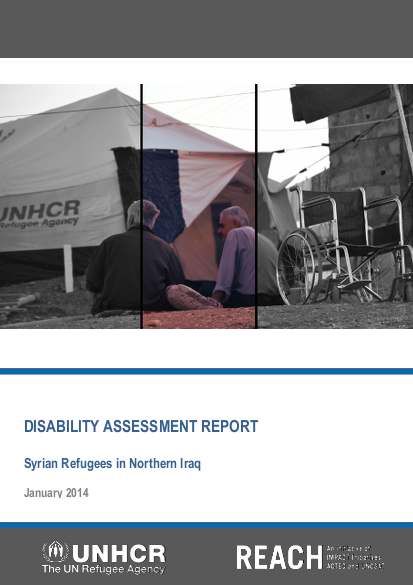January 2014

Coping with displacement in harsh conditions with limited access to resources, can be particularly challenging for people living with disabilities, who may be partly or fully dependent on a caregiver. As humanitarian actors struggle to provide services to Syrian refugees in the Kurdistan Region of Iraq (KRI), it is critical that the needs of persons with disabilities are considered, to ensure they have full and equal access to humanitarian assistance. There is a lack of comprehensive data on refugees with disabilities in camps hosting Syrian refugees across the KRI. While some organisations have provided one-off distributions of cash and/or mobility and assistance devices, no organisation was found to maintain a consolidated database with details on refugees with disabilities at the time of this assessment (November/December 2013). Therefore, the overall aim of this REACH disability assessment was first to identify all persons with disabilities in the camps. Secondly, in order to ascertain gaps in the overall humanitarian response and to encourage targeted service provision, the assessment also intended to understand the specific needs and challenges faced by refugees with disabilities. In partnership with the United Nations High Commissioner for Refugees (UNHCR), REACH conducted key informant interviews in November 2013, followed by household level interviews carried out between the 1st and 10th of December 2013. All Syrian refugee households residing in Basirma (509), Darashakran (1,051), Gawilan (414), Kawergosk (1,748) and Qushtapa (765) camps at the time of the assessment were surveyed. Surveyed refugee households that reported including one or several members with a disability participated in more detailed and in-depth interviews. The data collection tools used for this disability assessment were designed with inputs from the UNHCR Protection team and in consultation with other actors and organisations involved in the relief response provided in the assessed camps, including Handicap International.